Only five months ago, we were reporting that Juul ($JUUL) hiring had grown by 200% and its workforce size expanded by a cartoonish 400%. But things are different these days for the e-cigarette market leader as it navigates social and political backlash.
Politicians and local governments are cracking down on e-cigarette sales and there are now 18 recorded vaping-related deaths in 15 US states. Meanwhile, Juul has reducing its hiring efforts by as much as 37% in just the past two months. To add to Juul potential woes, analysts are now expecting Altria (NYSE:MO), which has a 35% stake in the company, to write down the value of its $12.8 billion investment.
Here's what we're seeing.
Workforce growth slowdown
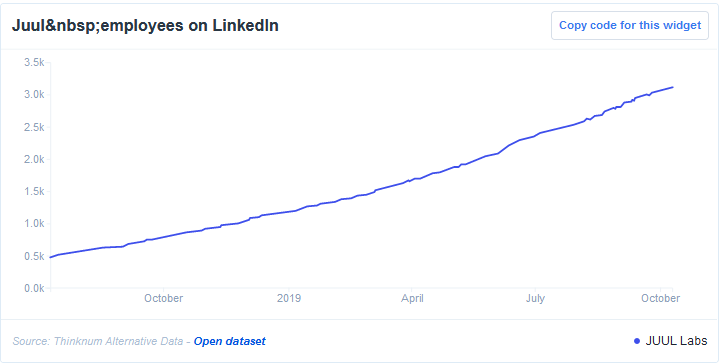
The number of LinkedIn (NYSE:LNKD) users listing Juul as their employer continues to rise, but not anywhere near the pace we were seeing just a few months ago. What was once a 51% QoQ growth rate at this point last year is now just 2.1%.
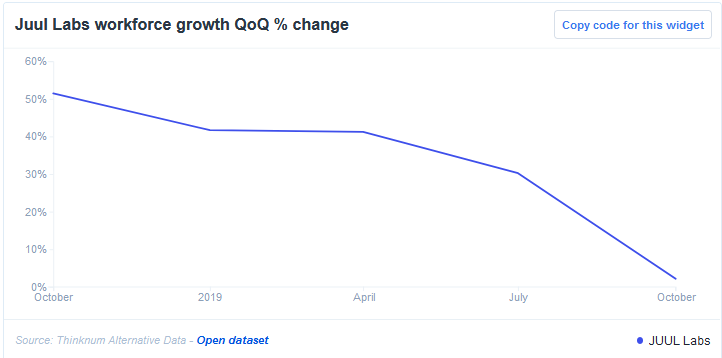
Assuming this trend continues, we will likely see workforce attrition at Juul in the coming year.
Hiring plummeting
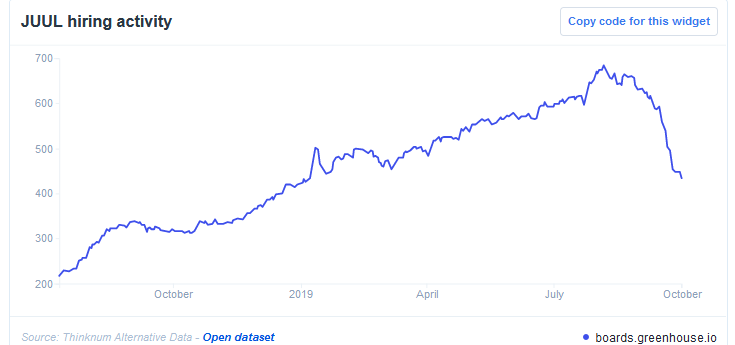
Perhaps the variable that most points to future growth — or contraction — for Juul can be found in its hiring activity over time. Just two months ago (and right around when states were banning e-cigarettes), the company had 685 job openings listed on its careers website.
As of October 1, that number sank to 434, and show little to no signs of recovery, given that the CDC released a report titled "Outbreak of Lung Injury Associated with E-Cigarette Use, or Vaping" that points to e-cigarette-related lung injury cases in 48 states and 18 deaths.
New product development?
As Juul collects itself and watches the headlines, categorical shifts in its job openings point to a potential phase of new product development, perhaps indicating a scramble to create alternative e-cigarettes that are less harmful.
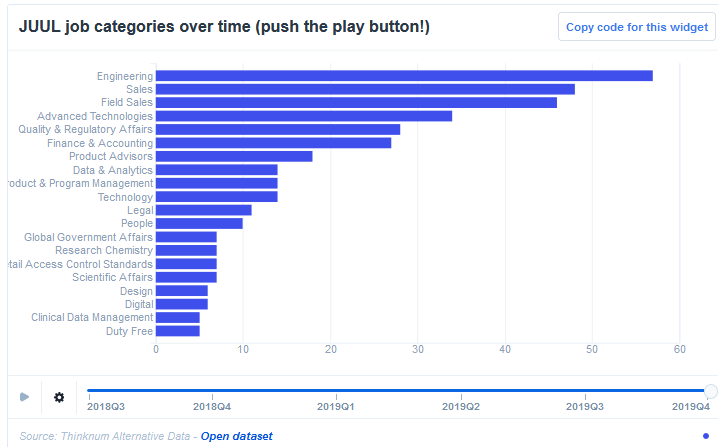
Like cigarettes before it, Juul is still everywhere
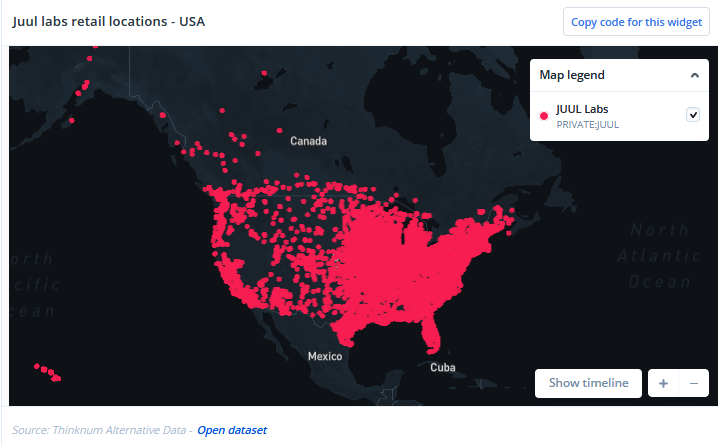
While these signs of contraction are stark, Juul's roaring growth up to this point will be tough — if not impossible — to completely reverse. Juul locations are virtually ubiquitous throughout the United States and Europe.
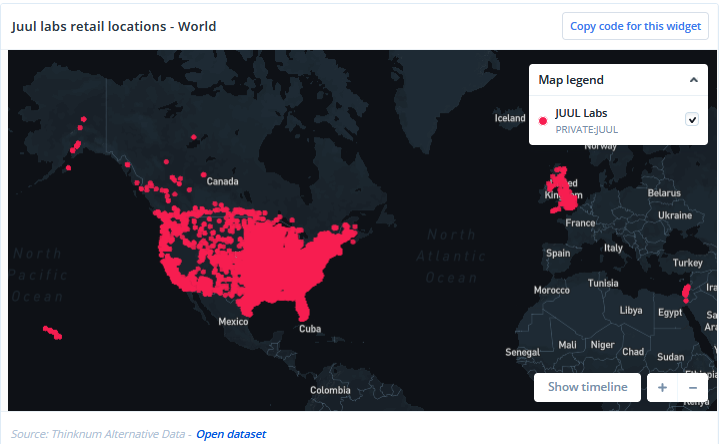
Just like cigarettes, their availability continued — and continues to this day — to be available at almost any corner shop or gas station, bans, taxes, and CDC warnings or not.
About the Data:
Thinknum tracks companies using information they post online - jobs, social and web traffic, product sales and app ratings - and creates data sets that measure factors like hiring, revenue and foot traffic. Data sets may not be fully comprehensive (they only account for what is available on the web), but they can be used to gauge performance factors like staffing and sales.
